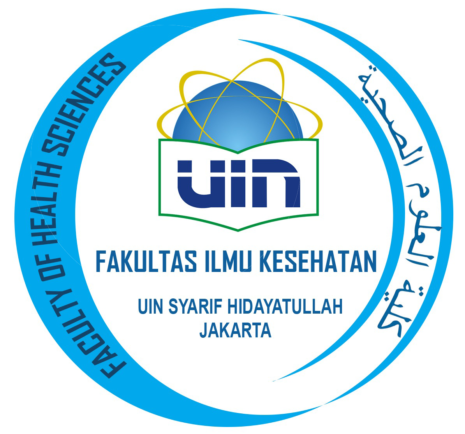Vision
To become a distinguished provider of pharmaceutical undergraduate education, the integration of pharmaceutical science development with Islamic values and Indonesian cultural wisdom will enable competitiveness at both national and international levels by 2024.
Mission
- Deliver-quality pharmaceutical undergraduate education is based on Islamic values and Indonesian cultural knowledge.
- Conduct research in the field of pharmacy utilizing Indonesian natural resources that meet the halal criteria.
- Engaging in community services based on research outcomes in the field of pharmacy.
- Establish productive and sustainable tridharma cooperation with national and international pharmaceutical-related institutions.
- Provide an opportunity for graduates of religious schools (madrasah/pesantren) to obtain high-quality pharmaceutical higher education.
Objectives
- Produce pharmacy graduates with Islamic integrity in performing pharmaceutical work, capable of competing nationally and internationally, and proficient in applying halal aspects in the pharmaceutical field.
- Develop a well-governed education system encompassing transparent, accountable, accurate, and efficient planning, implementation, evaluation, and sustainable development.
- Generate research outcomes in the field of pharmacy and halal product development applicable to the community.
- Possess the ability to actively contribute to providing solutions to pharmaceutical issues and halal aspects for the community.
- Foster good cooperation with various stakeholders in education, research, and community engagement
Graduate Profile
The Pharmacy Study Program, Faculty of Health Sciences, UIN Syarif Hidayatullah Jakarta, aims to produce globally reputable pharmacist graduates who excel in integrating Islamic knowledge, Indonesian values, and scientific competencies in the pharmaceutical profession. This objective is detailed through the following program educational objectives (PEOs) as shown in Table 3.
| Program Educational Objective (PEO) | Indicator |
| PEO-1: Producing pharmacy graduates who are faithful and pious, continuously learn and develop competencies throughout their lives. | 100% of graduates practice Islamic values in carrying out pharmaceutical work.5% of graduates engage in self-development through formal education, training, and courses. |
| PEO-2: Producing competent Pharmacy graduates who actively contribute to the pharmaceutical job sector. | 10% of graduates work in accordance with pharmaceutical expertise.2% Achieving accomplishments in their job track record. |
| PEO-3: Producing Pharmacy graduates with strong leadership skills, capable of making swift decisions. | 2% of graduates Hold leadership positions in their workplace.2% Involvement in organizations. |
| PEO-4: Producing Pharmacy graduates with creativity and innovation in pharmaceutical work, as well as being responsive to opportunities and capable of utilizing them for professional enhancement. | 2% of graduates become entrepreneurs in the pharmaceutical field.5% of graduates actively participate in professional development within their community. |
| PEO-5: Producing Pharmacy graduates who are caring and courteous in their service, capable of professional communication, and able to impart their experiences and competencies to the next generation. | 2% of graduates become preceptors.2% of graduates become speakers in various activities.2% of graduates are involved in community social activities. |
| PEO-6 Producing Pharmacy graduates who can contribute to the assurance process of halal pharmaceuticals, food, and cosmetics. | 2% of graduates work in institutions related to halal pharmaceuticals, food, and cosmetics assurance. |
Learning Outcomes
| Learning Outcomes | Description |
| Attitude Aspect | |
| LO-1 | Graduates are capable of demonstrating a devout attitude towards the Almighty God and upholding human values when performing pharmaceutical work. |
| LO-2 | Graduates are able to demonstrate a sense of nationalism by collaborating and contributing to national and state life. |
| LO-3 | Graduates are capable of demonstrating obedience to law, discipline, responsibility, and internalizing values, norms, and academic ethics in societal and national life. |
| General skills Aspect | |
| LO-4 | Graduates can work independently and systematically, make documents, evaluate them to make informed decisions and generate solutions and ideas in the pharmaceutical field. |
| LO-5 | Graduates are capable of designing, conducting, and writing research reports for the development of pharmaceutical science. |
| LO-6 | Graduates are able to collaborate and build networks to develop entrepreneurial ideas, as well as career and self-development in the pharmaceutical field, and they can communicate effectively in Indonesian, English, and Arabic. |
| LO-7 | Graduates are able to read the Quran and practice religious rituals. |
| Specific skills Aspect | |
| LO-8 | Graduates can identify and solve drug-related problems using evidence-based approaches in the design, preparation, distribution, management, and/or service of pharmaceutical preparations to optimize therapeutic success. |
| LO-9 | Graduates are able to search, critically analyze, and organize information about pharmaceutical preparations, and effectively communicate with individuals and communities. |
| LO10 | Graduates are capable of performing pharmaceutical work under the supervision of a pharmacist responsibly, according to applicable laws and ethical codes. |
| LO-11 | Graduates are equipped to apply comprehensive Islamic medical practices for health preservation, treatment, and well-being, and can also identify and assess the halal status of products like medicines, food, and cosmetics. |
| LO12 | Graduates are able to collaborate effectively with other healthcare professionals to enhance their healthcare services. |
| Knowledges Aspect | |
| LO-13 | Graduates are able to master the theories, methods, and applications of pharmaceutical science (pharmaceutics, pharmaceutical chemistry, pharmacognosy, pharmacology). |
| LP-14 | Graduates are able to grasp the concepts and applications of biomedical science (biology, human anatomy, microbiology, physiology, pathophysiology, biomedical ethics and biostatistics). |
| LO-15 | Graduates are able to understand concepts in pharmacotherapy, pharmaceutical care, pharmacy practice, as well as principles of pharmaceutical calculations, pharmacoepidemiology, evidence-based medicine, and pharmacoeconomics. |
| LO-16 | Graduates are able to understand pharmacy management, socio-pharmacy, pharmacy law and ethics, communication techniques, and basic principles of occupational safety. |
| LO-17 | Graduates are able to comprehend methods of Islamic treatment, governance of halal assurance systems, ways of identifying and analyzing the halal status of raw materials, processes, and pharmaceutical, food and cosmetic products. |
